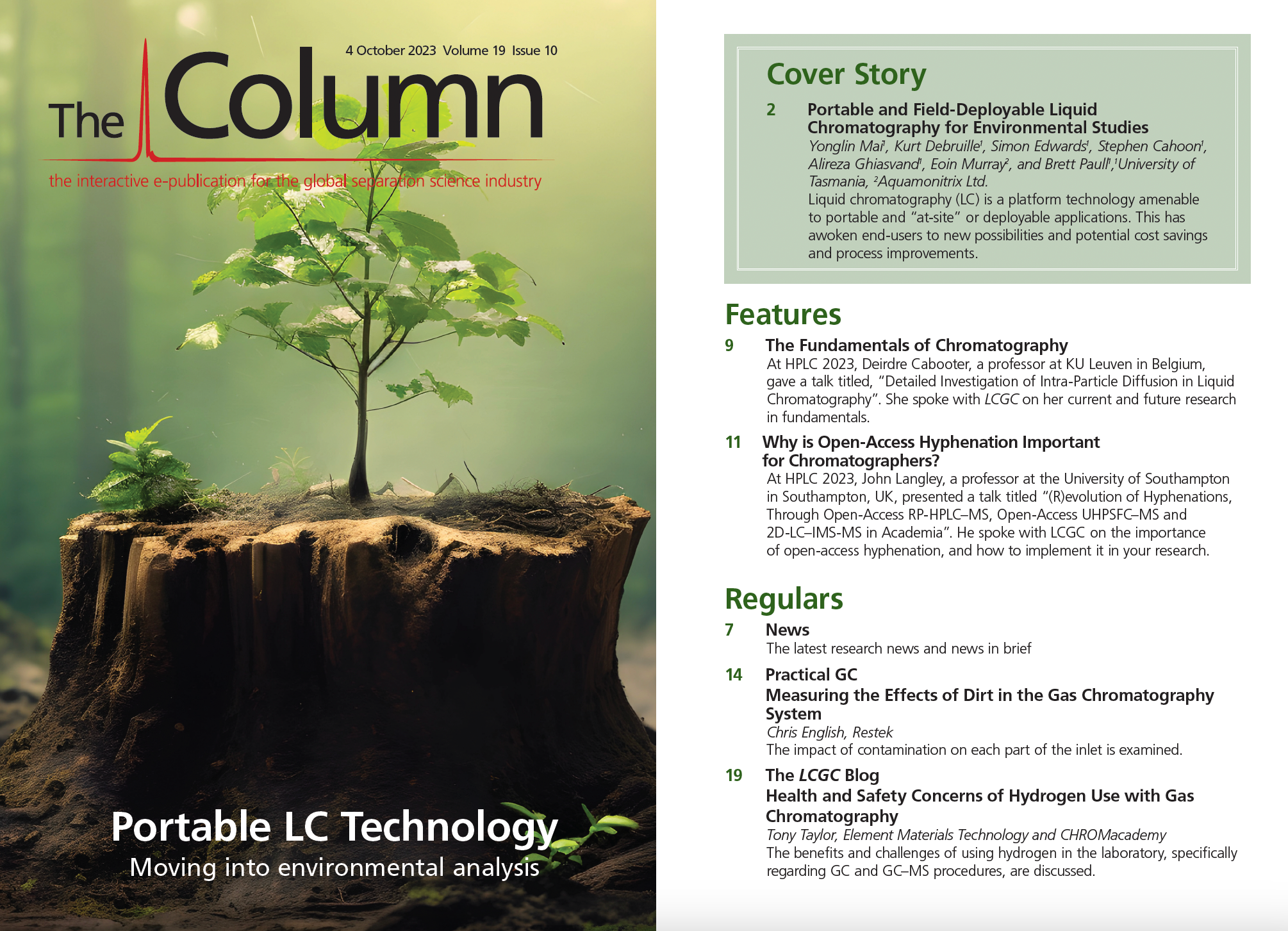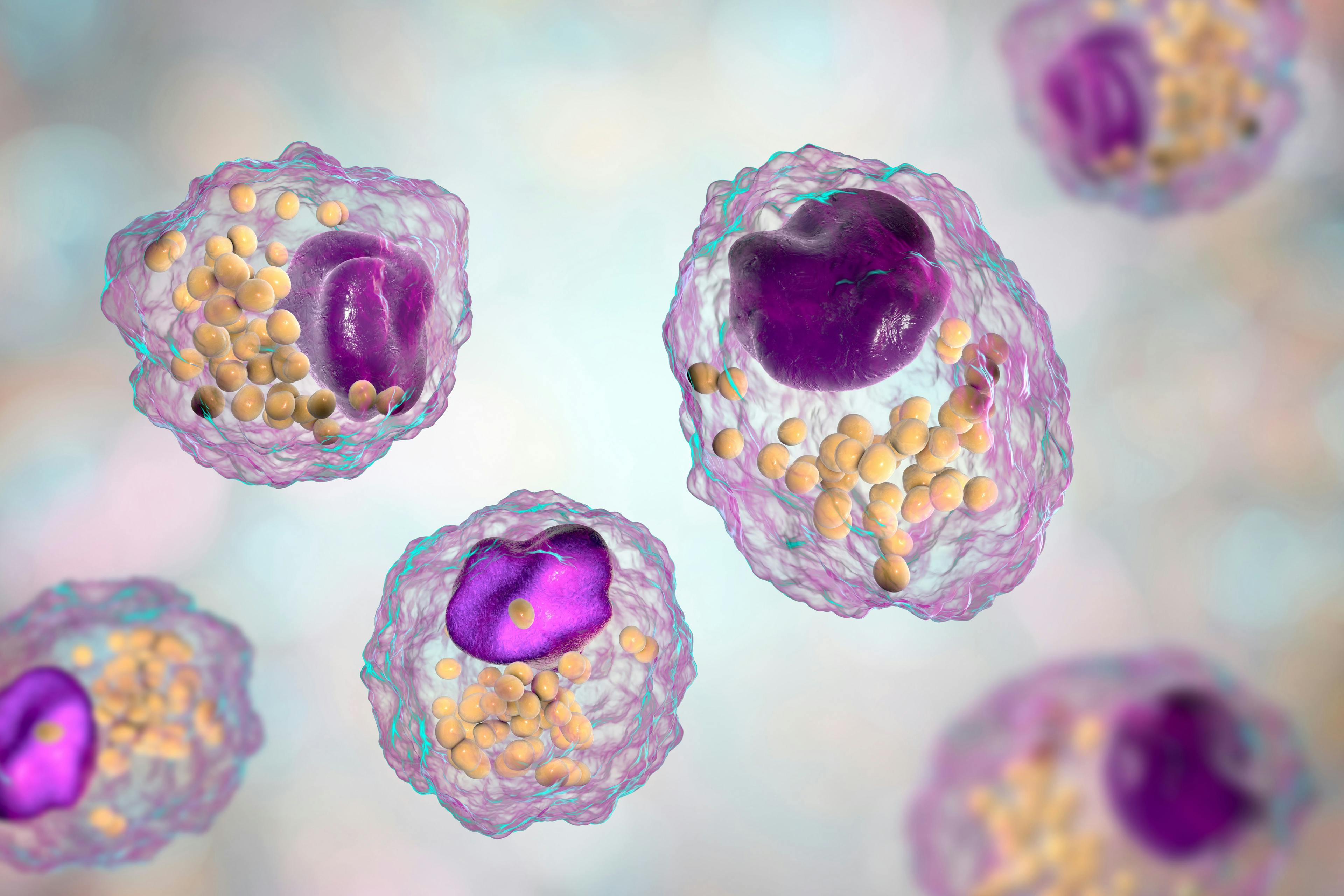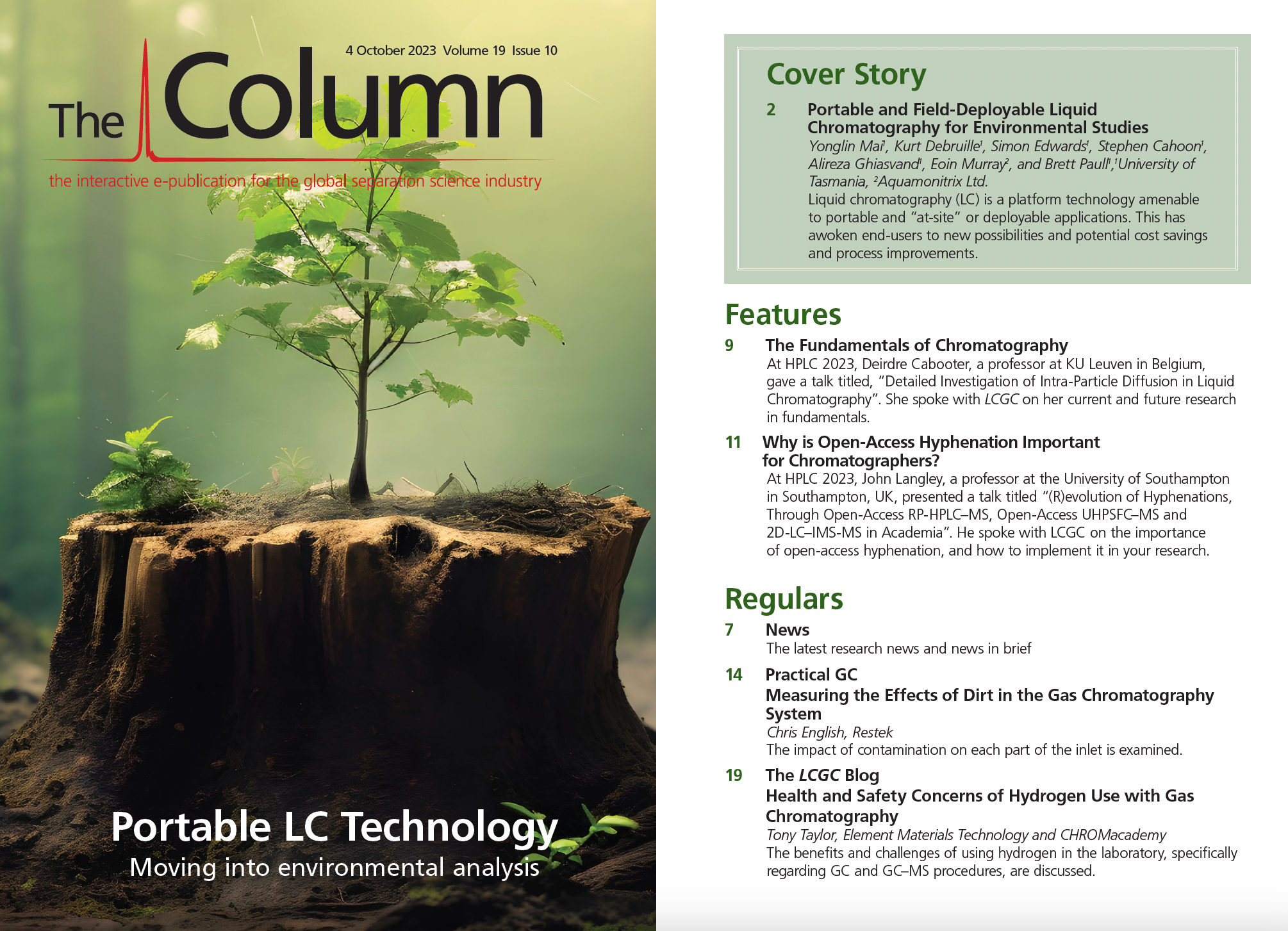The Fundamentals of Chromatography
At HPLC 2023, Deirdre Cabooter, a professor at KU Leuven in Belgium, gave a talk titled, “Detailed Investigation of Intra-Particle Diffusion in Liquid Chromatography”. She spoke with LCGC on her current and future research in fundamentals.
Q. What types of molecules do you work with in your research (1)?
A: Most of our work so far has been performed using small analytes. If possible, we prefer to use easy, neutral, small analytes that don’t result in too many secondary interactions. They also allow us to use simple mobile phases, preferably just a mixture of water and acetonitrile. We are also venturing into larger molecules, and have done some work on proteins. They represent a whole new world because they’re very sensitive to the mobile phase composition, they result in more secondary interactions, and are sensitive to pressure. With increasing pressure, we have noticed an increase in the retention factor, which will affect band broadening, so there is a lot of work to do there. The pore size of the column is also more important because you want to make sure that your larger molecule can sufficiently penetrate and explore the pores. It’s an aspect we need to investigate further.
Q. Why should more chromatographers study the fundamental aspects of chromatography?
A: You need fundamentals to understand what you’re doing and why you’re doing it. For example, why you’re applying certain flow rates, why you’re using certain column lengths, or a certain particle size. That is important for everybody. For us more particularly, we really want to know all the intricate details of the column and how they are affecting band broadening, especially when you’re dealing with different compounds. The ultimate aim is to understand it so well that we can design better columns for specific applications in the future.
Q. What other aspects of your research are worth highlighting?
A: I see two challenges for our current research. The first is obtaining sufficient funding to be able to do this research, which is not always evident because it’s very fundamental. Luckily, in Belgium, our national funding agency funds basic fundamental research. However, the success rate is low—around 20% and sometimes even lower—so we really have to fight for every Euro. Another challenge is finding good students that are willing to do this work because, of course, there are other research topics out there in the medical or clinical fields that are much sexier. The students we can attract to do this work are usually very motivated, and they really want to see it through. It is really nice to work with such motivated students.
Q. How will artificial intelligence (AI) benefit the chromatography community?
A: Artificial intelligence is around and already affecting our daily life, and this will only increase in the future. As chromatographers, we need to be on board with this evolution, and a lot of people already are. For example, they are using AI for signal processing or for retention time predictions. Our ambition is to develop models that are so good—because we use a lot of good quality data—that they result in predictions that are so excellent that in the end we don’t have to do experiments anymore. We can just select a few experiments for verification purposes and predict the outcome. I think that would be ideal, while it would also reduce the environmental impact of analyses.
Reference
(1) Cabooter, D.; Sadriaj, D.; Li, H.; Jiang, Z.; Desmet, G. Detailed Investigation of Intra- Particle Diffusion in Liquid Chromatography. Presented at: HPLC 2023. June 18–22, 2023. Düsseldorf, Germany. KN19.
Deirdre Cabooter is a professor in the Department of Pharmaceutical and Pharmacological Sciences, KU Leuven, Belgium. Email: deirdre.cabooter@kuleuven.be

New Method Explored for the Detection of CECs in Crops Irrigated with Contaminated Water
April 30th 2025This new study presents a validated QuEChERS–LC-MS/MS method for detecting eight persistent, mobile, and toxic substances in escarole, tomatoes, and tomato leaves irrigated with contaminated water.
University of Tasmania Researchers Explore Haloacetic Acid Determiniation in Water with capLC–MS
April 29th 2025Haloacetic acid detection has become important when analyzing drinking and swimming pool water. University of Tasmania researchers have begun applying capillary liquid chromatography as a means of detecting these substances.
Prioritizing Non-Target Screening in LC–HRMS Environmental Sample Analysis
April 28th 2025When analyzing samples using liquid chromatography–high-resolution mass spectrometry, there are various ways the processes can be improved. Researchers created new methods for prioritizing these strategies.

.png&w=3840&q=75)

.png&w=3840&q=75)



.png&w=3840&q=75)



.png&w=3840&q=75)














